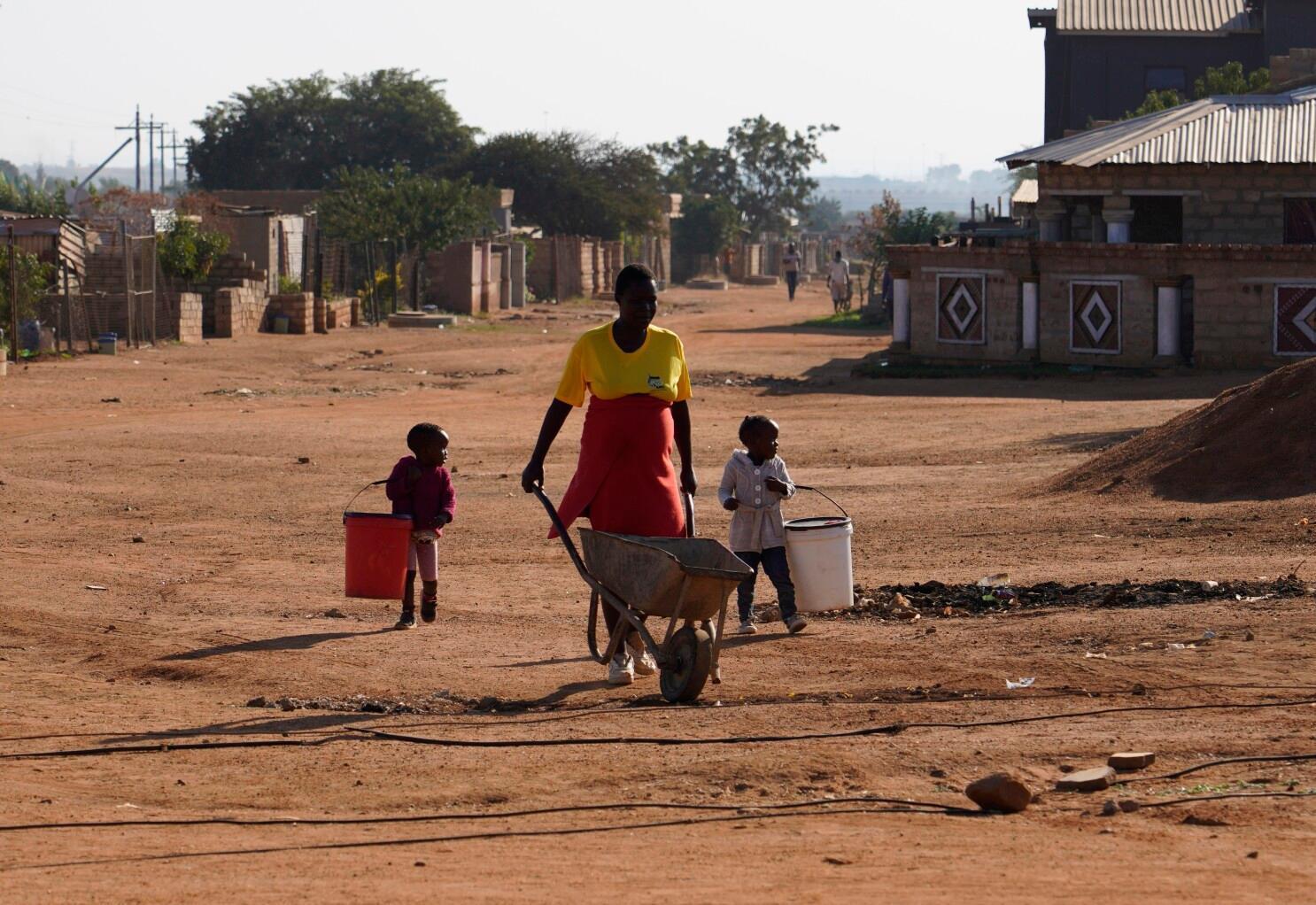In a continent of staggering beauty and boundless potential, Africa’s wealth lies buried beneath mountains of exploitation, misgovernance, and entrenched inequality. In recent years, a cruel paradox has deepened: while luxury towers rise in Johannesburg and private jets idle in Lagos hangars, nearly half of Africa’s 750 million people struggle to feed themselves, educate their children, or access clean water. The numbers are nauseating. According to a searing report by Oxfam, just four men – Nigerian tycoon and Africa’s richest man Aliko Dangote, South Africa’s Johann Rupert and Nicky Oppenheimer, and Egypt’s Nassef Sawiris, now command more wealth than 375 million Africans combined. And while their riches have grown by 56 percent in five years, half of the continent’s people are falling deeper into destitution.
Sit-Tight Leaders: The Architects of African Misery
This isn’t merely a tale of market forces or hard-won capitalism. No; this is manufactured poverty, birthed in the opulent palaces of sit-tight autocrats who have fused statecraft with personal empire-building. Across too many African capitals, presidents-for-life govern not for the public, but for private ends; immune to criticism, insulated by militarized loyalty, and seduced by the vast spoils of unaccountable power.
From Uganda’s Yoweri Museveni to Cameroon’s Paul Biya, Equatorial Guinea’s Teodoro Obiang, and Eritrea’s Isaias Afwerki, the continent is littered with men who have turned the state into a family business, throttled opposition, and rewritten constitutions as casually as crossing out a grocery list.
These rulers, aging and obstinate, cling to power not out of duty but addiction. And while they enrich cronies and entrench themselves, schools rot, clinics collapse, and youth flee – to the Mediterranean, or into the arms of insurgents.
The Billionaire Blind Spot
Aliko Dangote, Africa’s wealthiest man and the public face of entrepreneurial hope, urges his fellow billionaires to “think big” and fund Africa’s growth. He touts mega-projects like his Lagos refinery – a landmark achievement, no doubt. But even such industrial marvels stand as islands of success in oceans of failure. The irony is painful: Dangote’s refinery exists in a nation that still imports petrol. Oxfam is unequivocal: Africa’s richest are thriving because the system is designed to protect them; a system where taxes are regressive, wealth is hidden in offshore accounts, and government policies are drafted not in the interest of the majority, but in servitude to the elite. Meanwhile, according to the same report, Africa loses $88.6 billion annually to illicit financial flows, a sum that dwarfs the total annual healthcare budget of many countries. In simple terms, money that could build roads, hospitals, and schools is instead tucked away in secret vaults in Switzerland, Dubai, and the Cayman Islands.
Democracy in Chains
This economic cannibalism thrives because Africa’s democracy is increasingly a puppet show, choreographed by the rich and performed by the powerful. Take Nigeria, the continent’s largest democracy. Political parties charge millions of naira for nomination forms – effectively locking out ordinary citizens from seeking office. Campaigns are soaked in cash and marinated in vote-buying. Policies aren’t drafted through public consultation; they’re purchased in elite backrooms. Elections are not contests of ideas but auctions of influence.
A Broken Social Contract
Oxfam warns that nearly 90% of African countries have abandoned policies on labor rights, taxation, and minimum wages since 2022 – at a time when millions are tumbling into poverty. These are not policy oversights; they are acts of moral betrayal. Governments are deliberately avoiding taxing the rich while slashing social services and breaking the backs of the poor through inflation, underemployment, and neglect. Africa’s tax systems are three times less effective at redistributing wealth than the global average; not because they can’t work, but because they are built not to work.
The Cost of Complacency
This grand heist isn’t just about money. It’s about lost potential, lost generations, and lost peace. Inequality fuels radicalization. Poverty begets conflict. Disillusioned youth, robbed of agency and future, become easy prey for extremism, criminal gangs, or the lure of a perilous migrant boat to Europe.
At the heart of the crisis is a political capture that rewards silence, punishes activism, and criminalizes dissent. Africa doesn’t lack resources. It lacks leadership with conscience and courage.
What Must Be Done
The time for politeness is over. The continent does not need more elite forums or glossy investment brochures. It needs:
• Progressive taxation: Wealth must be taxed, aggressively and transparently. Billionaires must not be demi-gods above national obligation.
• Term limits with teeth: Sit-tight rulers must be named and shamed, their enablers sanctioned, and their abuses broadcast.
• Transparency in public spending: Every stolen dollar is a murdered future. Anti-corruption must be proactive, not performative.
• Democratization of opportunity: Political access must be opened to the working poor, not fenced off by party barons.
• Investment in people over prestige: African governments must spend more on primary education, rural healthcare, and food security than they do on presidential jets and marble palaces.
Final Word: The Shame of Wealth Amid Wretchedness
To drive past the slums of Kibera, Ajegunle, or Khayelitsha and then land your helicopter on a private vineyard or refinery tower is not success. It is scandal. Africa is not poor. It is being impoverished by the rich who hoard, the rulers who cling, and the world that watches. Until the continent breaks free from this suffocating marriage of greed and autocracy, it will remain a continent of heartbreak and stolen dreams; a giant with bound feet, kneeling before kings of gold and gods of inertia. Let history not record that Africa was conquered and taken hostage by enemies abroad, but by cowards and kleptocrats within.





